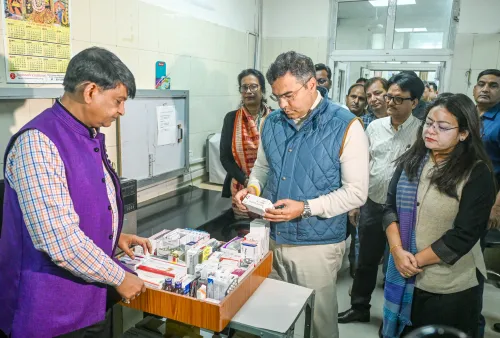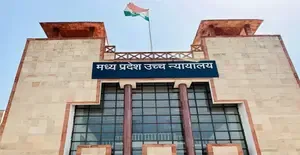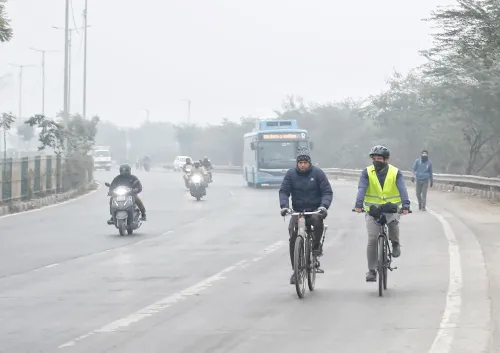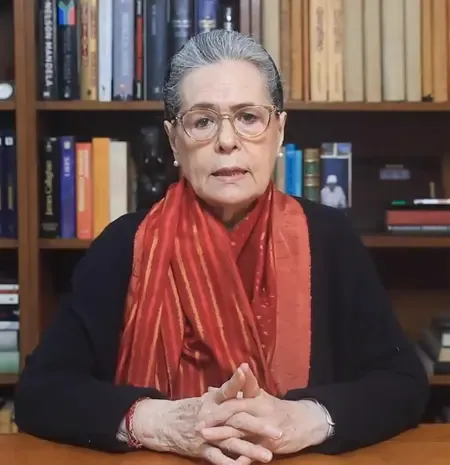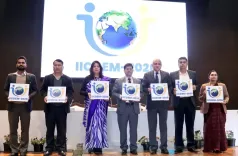Is Indonesia Ready for the Potential Surge of New Covid-19 Variants?

Synopsis
Key Takeaways
- Proactive government measures are in place to combat new Covid-19 variants.
- Public vigilance is crucial amidst rising case numbers.
- Health protocols are being emphasized for community safety.
- Monitoring of entry points is being strengthened.
- Vulnerable populations require targeted health screenings.
Jakarta, June 5 (NationPress) - In light of the rising cases of a new Covid-19 variant in neighboring nations such as Singapore, Malaysia, and Thailand, Indonesian President Prabowo Subianto convened a meeting with Minister of Health Budi Gunadi Sadikin at the State Palace in Jakarta.
The discussions focused on essential strategies to prevent the new variant from entering the archipelago and to enhance the national healthcare system, according to Sadikin.
“There is no need for the public to feel anxious or panic. These new variants tend to be milder, but vigilance is crucial,” Sadikin stated after exiting the Palace.
From January to May 2025, Indonesia recorded a total of 72 confirmed Covid-19 cases out of 2,160 specimens tested, as reported by Aji Muhawarman, head of the Bureau of Communication and Public Information at the Ministry of Health.
The most significant rise in cases was observed during the first three weeks of May, particularly in the provinces of Banten, Jakarta, and East Java, with a positivity rate of 3.62%.
Currently, the number of specimen reports has decreased, with only seven reported in the fourth week of May.
“We are continuously enhancing infectious disease surveillance, including Covid-19, through sentinel systems and monitoring at entry points across the nation,” Aji told Xinhua.
The ministry is actively promoting health protocols and maintaining telemedicine services initiated during the pandemic for easier access to healthcare.
While no travel bans have been enforced as of now, Aji recommended that individuals consider postponing international travel if possible or comply with health protocols of the destination country if travel is unavoidable, as reported by Xinhua.
A circular was issued by the Ministry on May 23 to all provincial health offices and relevant agencies, urging heightened vigilance and reinforced preventive measures due to recent surges in neighboring countries.
Herman Deru, Governor of South Sumatra, urged the community to remain cautious regarding Covid-19 despite no new cases reported in the region thus far.
In collaboration with local health agencies, he encouraged everyone to uphold hygiene standards and follow health protocols.
Dicky Budiman, an epidemiologist at Griffith University, Australia, pointed out that the detection of new subvariants is happening amid limited surveillance compared to the pandemic phase, indicating that the actual number of cases could be significantly higher than reported.
The new NB.1.81 subvariant, expected to be prevalent in Indonesia, exhibits faster transmission but lower severity, which highlights the effectiveness of community immunity from vaccination. However, vulnerable populations like the elderly still require protection through clean living conditions, good air quality, and adherence to health protocols.
Arzeti Bilbina, a member of the House of Representatives focused on health issues, stressed the importance of preventive strategies to limit virus transmission, including improving tracking systems, ensuring the availability of protective gear for medical professionals, and educating the public on health protocols.
She emphasized the need for special attention to vulnerable groups such as children and the elderly through targeted health screening programs.
Netty Prasetiyani, another House member, called on the government to strengthen surveillance at border checkpoints, including the movements of individuals in and out of seaports and airports, to curb potential virus transmission from abroad.
“Mobility between regions and international travel into Indonesia is a significant route for Covid-19 transmission that must be closely monitored,” she asserted.


